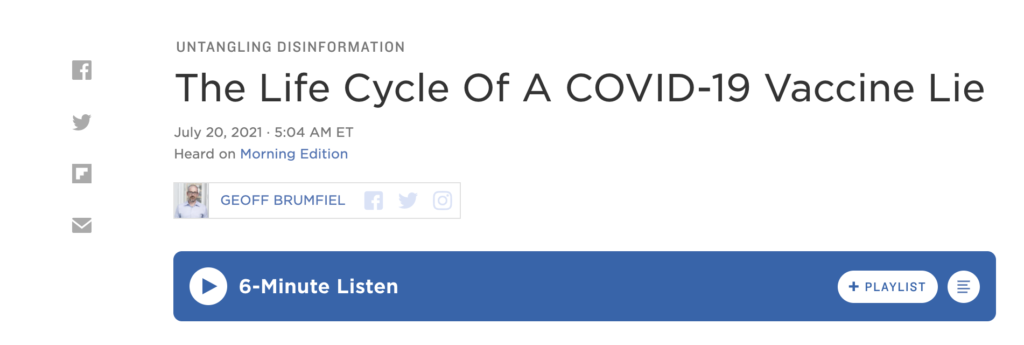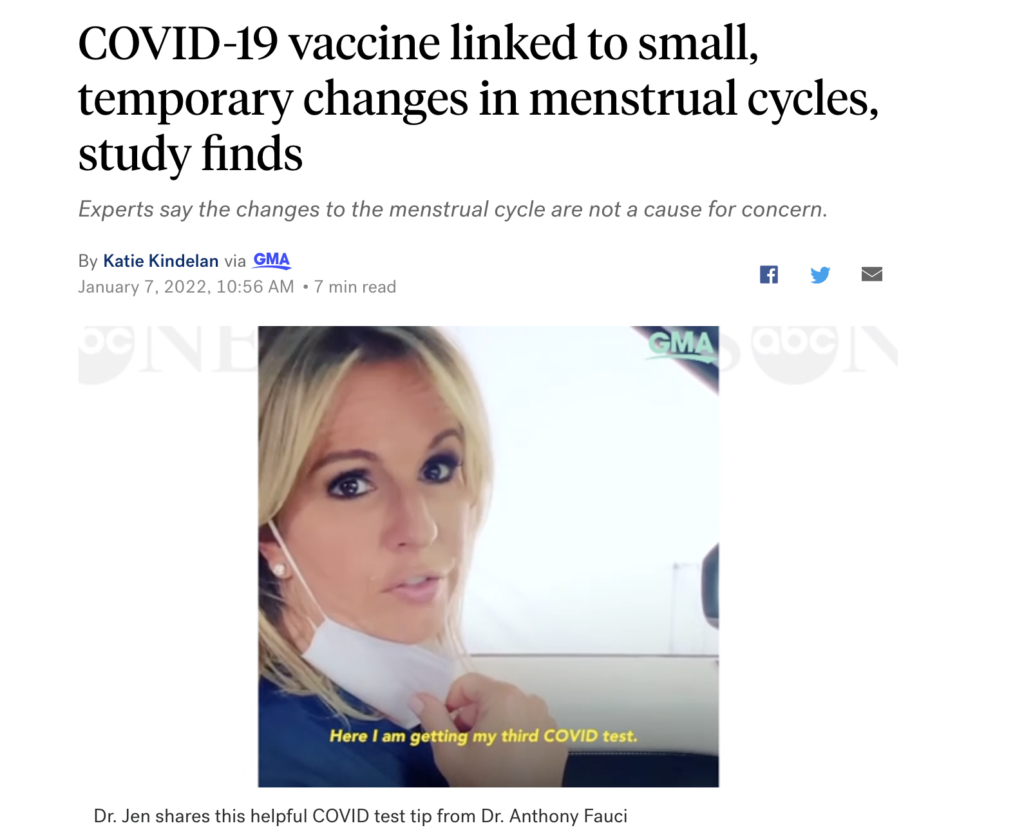Source: The Federalist
As Covid-19 vaccines became more widely available in early 2021, thousands of women who had received one began reporting changes in their menstrual cycles. Some noticed their cycles were longer, with their period arriving one to a few days late. Some noticed unusual spotting and cramps.
At the time, public health officials and media echo chambers were quick to brush off women’s observations. They responded by insisting vaccines had no effect on fertility (which menstrual cycles are obviously a key component of), a widely shared reason many women were hesitant to get vaccinated in the first place.
ABC News chief medical correspondent Dr. Jen Ashton quickly jumped on these reports as having “zero medical or scientific basis.”
“Yes, women can get the vaccine and then experience changes in their menstrual cycle. That does not mean one causes the other,” Ashton said.
Other reports acknowledged there may be a connection between the two, but touted period irregularities as something worth dealing with if it means reducing the risk of contracting COVID.
“COVID is really bad, it makes people very sick. Having a couple of months of cramping or spotting for me personally is totally worth the protection,” said Katharine Lee, a doctor interviewed by CBS who experienced the menstrual cycle changes herself.
Other headlines attempted to gaslight women into thinking their symptoms were part of what was causing vaccine hesitancy, not the other way around. A July NPR story headlined, “The Life Cycle Of A COVID-19 Vaccine Lie,” used the story of women discussing changes in post-vaccine menstrual cycles online as an example of how vaccine misinformation is spread.

Last week, a new NIH-funded study published in the journal Obstetrics and Gynecology confirmed these initial anecdotal claims were indeed a side effect of the vaccine. The authors of the study said they believe the vaccine is having an effect on women’s hypothalamic-pituitary-ovarian axis, which helps regulate the menstrual cycle.
As with so many sacred COVID truths that have since turned out not to be entirely true over the last two years, it’s unlikely we will see any corrections or apologies. The corporate media coverage of this new study has mostly aimed to downplay the findings as “small” and “temporary,” as if that makes vaccine side effects somehow insignificant to a woman’s overall health.
“COVID vaccines may briefly change your menstrual cycle, but you should still get one,” reads an NPR headline from the same reporter who covered the topic as “misinformation” in July. “COVID-19 vaccine linked to small, temporary changes in menstrual cycles, study finds,” reads an ABC News headline. Under that ABC headline is a video featuring Jen Ashton, the same ABC correspondent who said there is “zero hormonal interaction” from vaccines last May.

“Study Offers Reassurance on COVID Shots, Women’s Periods,” reads a positive NBC headline. Your period may be “slightly late,” reads another.
Is it any wonder that someone might become vaccine-hesitant or a so-called COVID “conspiracy theorist” when health officials and their media mouthpieces continue to contradict themselves every few months? Or when new “science” that dispels previous “science” is presented with a clear agenda?
We need more studies and more data, but in the meantime, the media should stop pretending women are crazy or spreading misinformation when they desire to know the short-term and long-term side effects of pharmaceutical intervention on their reproductive health, no matter how “small” or “temporary.”

